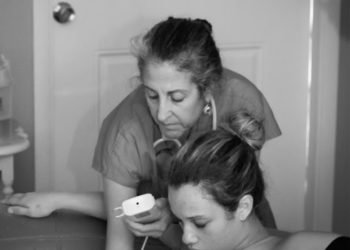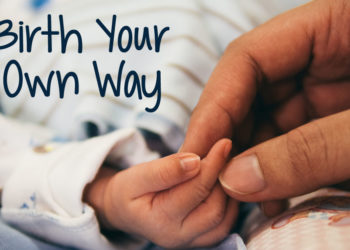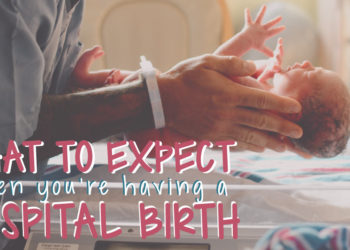Giving birth is a transformative and deeply personal experience. As expectant parents, you have the autonomy to choose where and how you want to bring your baby into the world. While hospitals and birthing centers are popular options, many families are considering home births as an alternative.
One of the key decisions to make when planning a home birth is whether or not to have a midwife present. In this article, we will explore the benefits, risks, and considerations of having a midwife-assisted birth versus an unassisted birth at home.
Understanding the Role of a Midwife
A midwife is a trained healthcare professional who provides comprehensive care to women throughout pregnancy, labor, and the postpartum period. They are experts in supporting natural birth, providing emotional and physical assistance, and ensuring the well-being of both the mother and the baby. The primary focus of a midwife is to empower women and promote a safe and positive birthing experience.
The Option of a Midwife-Assisted Home Birth
Many families who choose a home birth opt to have a midwife attend the delivery. This option combines the comfort and familiarity of home with the expertise and support of a trained healthcare professional. Here are some key points to consider about midwife-assisted home births:
1. Personalized Care and Relationship Building
One of the main advantages of having a midwife for a home birth is the personalized care and relationship that develops throughout the pregnancy. Midwives typically spend more time with their clients during prenatal appointments, allowing for in-depth discussions, continuity of care, and the building of trust. This personalized approach can significantly enhance the birthing experience.
2. Continuous Support and Advocacy
During labor and birth, a midwife provides continuous support and advocacy for the birthing person. They offer comfort measures, monitor the progress of labor, and provide guidance for pain management techniques. Midwives are skilled in recognizing potential complications and can take appropriate action or make timely decisions to ensure the safety of both the mother and the baby.
3. Familiar Environment and Increased Comfort
Giving birth at home allows you to create a familiar and comfortable environment. Being in your own space can help you feel more relaxed, which may positively impact the progress of labor. With a midwife present, you can have the reassurance of medical expertise while still enjoying the comforts of home.
4. Lower Intervention Rates
Studies have shown that home births attended by midwives have lower rates of medical interventions compared to hospital births. This includes lower rates of cesarean sections, episiotomies, and assisted deliveries. Midwives prioritize a hands-off approach, allowing the natural process of labor to unfold, which can lead to a more positive and empowering birth experience.
5. Postpartum Care and Bonding
After the birth, midwives provide comprehensive postpartum care. They continue to monitor the well-being of the mother and baby, offer breastfeeding support, and provide guidance on newborn care. This ongoing care helps facilitate the bonding process and ensures a smooth transition into parenthood.
Exploring Unassisted Births at Home
While many families choose to have a midwife present for their home birth, there is a growing trend of unassisted births, also known as freebirths or DIY births. Unassisted birth refers to intentionally birthing at home without a healthcare professional in attendance. Here are some important factors to consider regarding unassisted home births:
1. Autonomy and Self-Determination
Unassisted births allow expectant parents to take full control of the birthing process. It is a deeply personal choice that embraces the belief in the body’s natural ability to give birth. Unassisted birth advocates argue that removing medical interventions and external influences allows for a truly instinctual and empowered experience.
2. Previous Traumatic Experiences or Concerns
Some individuals may choose unassisted birth due to past traumatic experiences with doctors or hospitals. The desire to avoid medical interventions, such as inductions or cesarean sections, can also be a motivating factor. Unassisted birth offers the opportunity to reclaim the birthing experience and address any fears or concerns associated with medicalized births.
3. Cost Considerations
The high cost of medical care during pregnancy and birth can be a significant factor for choosing an unassisted birth. By forgoing medical professionals, tests, and hospital fees, families may be able to minimize expenses associated with childbirth. However, it is important to weigh the potential cost savings against the potential risks and lack of medical support.
4. Freedom from Clinical Environment
Unassisted birth provides an alternative to the clinical setting of a hospital or birthing center. Some individuals find that the absence of medical equipment and the ability to create a personalized and intimate birthing environment enhance their overall experience. The freedom to move, make noise, and follow the body’s natural instincts can contribute to a positive birth experience.
5. Risks and Safety Considerations
It is essential to acknowledge that unassisted birth carries inherent risks. Without a trained healthcare professional, the risk of complications increasing and not receiving adequate attention is higher. Emergency situations can arise unexpectedly, and immediate medical intervention may be necessary to ensure the safety of both the mother and the baby.
Consulting with Healthcare Professionals
Regardless of whether you choose a midwife-assisted home birth or an unassisted birth, it is crucial to consult with healthcare professionals throughout your pregnancy. Regular prenatal care, including check-ups, ultrasounds, and screenings, helps monitor the well-being of both the mother and the baby. Healthcare professionals can provide important guidance, support, and medical expertise to ensure a safe and healthy pregnancy and birth.
Legal Considerations and Home Birth Regulations
The legality of unassisted births varies by country and jurisdiction. In some places, there are no specific laws that outlaw unassisted births, but regulations may exist regarding home births and the practice of midwifery. It is important to research and understand the laws and regulations in your particular region to make an informed decision.
Creating a Birth Plan
Whether you choose a midwife-assisted home birth or an unassisted birth, it is essential to create a birth plan that reflects your preferences and desires. A birth plan outlines your wishes regarding pain management, interventions, and the overall birthing process. Discuss your birth plan with your healthcare provider and ensure that it aligns with their recommendations and any legal requirements in your area.
Preparing for a Home Birth
If you decide to have a home birth, there are several steps you can take to prepare for the experience:
- Research and Educate Yourself: Learn about the different stages of labor, pain management techniques, and potential complications. Attend birthing classes or workshops to gain knowledge and confidence in your ability to give birth at home.
- Create a Supportive Environment: Set up a comfortable, calm, and safe space for your birth. Consider creating a birth kit with essential supplies, such as clean towels, blankets, and a birth pool if desired.
- Arrange for a Birth Team: Whether you choose a midwife or opt for an unassisted birth, assemble a supportive birth team that can provide emotional and physical assistance during labor. This team may include your partner, family members, or close friends.
- Prepare for the Unexpected: Have a plan in place for emergencies or situations where you may need to transfer to a hospital. Know the location of nearby hospitals, have transportation arrangements, and keep important contact numbers readily available.
- Practice Self-Care and Relaxation: Prioritize self-care during pregnancy to promote optimal physical and mental well-being. Engage in relaxation techniques, such as meditation, breathing exercises, or prenatal yoga, to prepare for the intensity of labor.
Why Choose Midwife360?
Choosing between a midwife-assisted home birth and an unassisted birth is a deeply personal decision. Midwife360 provides exceptional services to address the various healthcare needs of women.
Whether you’re in search of an OBGYN, midwife, or doula to support you during childbirth, including at-home births, the skilled APRN/CNM team located in West Palm Beach, Florida, is available.
With a wealth of experience, they have aided numerous families in achieving their desired birthing experiences. Our particular team has a specialization in home and water births and is renowned for their outstanding bedside manner. We ensure that as a woman welcomes her new child into the world, she is treated with the highest respect and empowerment.


















